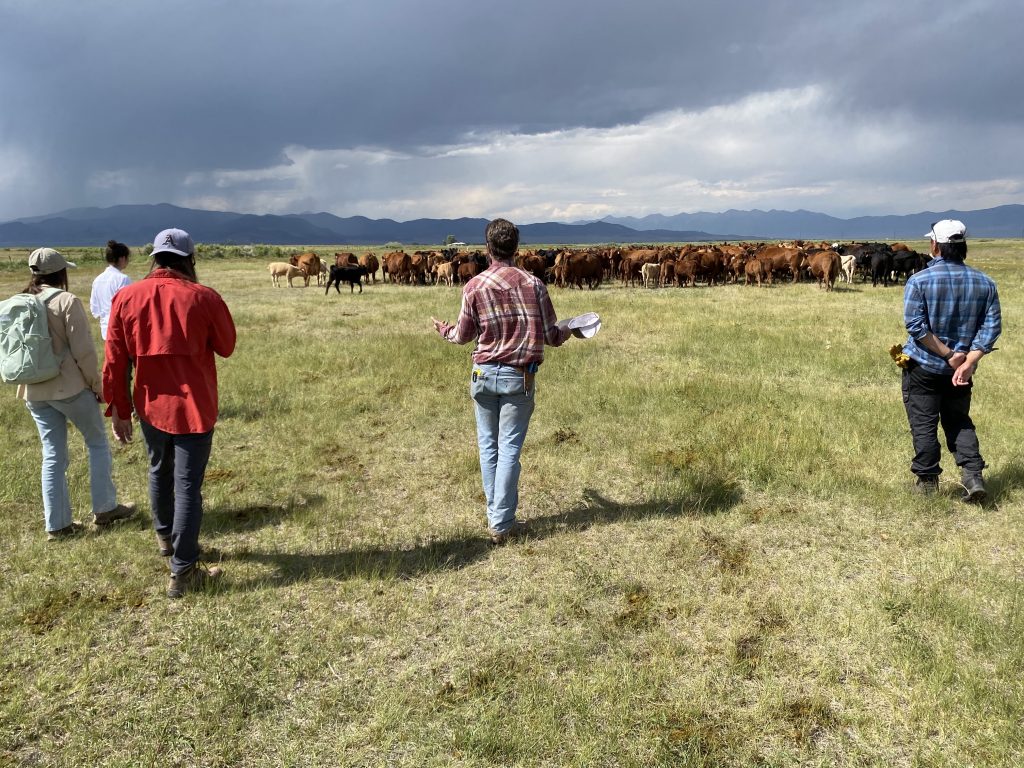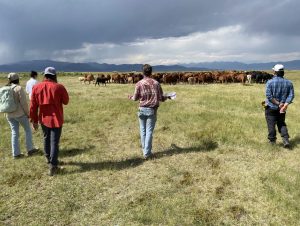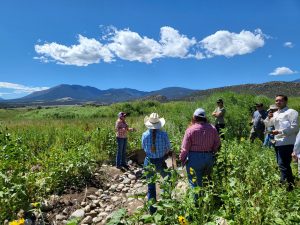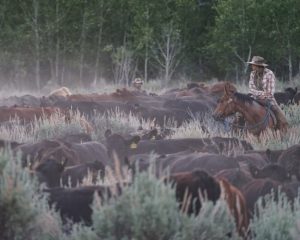
WHAT WE DO
The Western Ranch Management and Ecosystem Stewardship Program, hosted by the Warner College of Natural Resources, is a developing academic and research initiative aimed at addressing today’s challenges of ranching in a rapidly changing world.
Our program is founded on understanding the diverse ecosystems that define western landscapes, and the natural resources and processes that support ranching communities. We work closely with ranch owners, managers and stakeholders to identify education and research needs specific to the Rocky Mountain West.
Ranches serve as the classroom and laboratory so students can learn by hands-on experience, interact with practitioners, and see first-hand the strategies used to keep working lands sustainable.
OUR MISSION
Support higher education, applied research and professional development for future generations of ranchers, producers and land stewards through experiential learning and engagement in the Rocky Mountain West.
OUR VISION
Promote sustainable ranching practices through traditional and contemporary approaches that support our forests, rangelands, wildlife and water while fostering livelihoods and strengthening the resilience of working landscapes.
News
- Summer 2025 Ranch Management and Stewardship Field CourseJoin us for the Ranch Management and Stewardship Field Course (NR 536), an immersive experience exploring how ranches manage land and resources across southern Colorado and northern New Mexico. Open to CSU and non-CSU students, the course runs July 14–23 and July 28–August 6, 2025. Registration opens March 25. Scholarships available.
- Scholarships Available for Summer 2025Scholarships ranging from $3,000 to $7,000 are available for the Summer 2025 Ranch Management and Stewardship Field Course. Open to CSU students, incoming Western Ranch Management master’s students, and non-students. To apply, contact Tony Vorster (anthony.vorster@colostate.edu). Applications are due by April 25.
- Temple Grandin Excellence Fund for Western Ranch Management and Ecosystem Stewardship AnnouncedAn anonymous donor has established a new endowment honoring Dr. Temple Grandin’s lifetime work. WRMES has been selected as the Warner College of Natural Resources recipient. The endowment will support the program’s mission, including student scholarships and experiential learning. Contributions to the fund can be made through the Colorado State University Foundation.
- WRMES Leading Bighorn Sheep Forage Quality StudyBighorn sheep populations are declining across the West, often due to respiratory disease with high mortality rates. WRMES received a research grant from Colorado Parks and Wildlife to explore whether forage quality influences herd survival. The study will assess forage across several ranches in southern Colorado to better understand resistance differences among herds.
- WRMES Studying Livestock Management Approaches that Reduce Depredation and Improve Animal Performance and Ecosystem HealthWith predator populations on the rise, some ranchers are using traditional methods—herders, dogs, and portable fencing—to protect livestock. WRMES received a Dean’s Fund grant to study how these practices affect animal welfare, vegetation, and soil health. The project partners with ranchers in Oregon and Idaho who graze on public lands and have successfully reduced predation.





